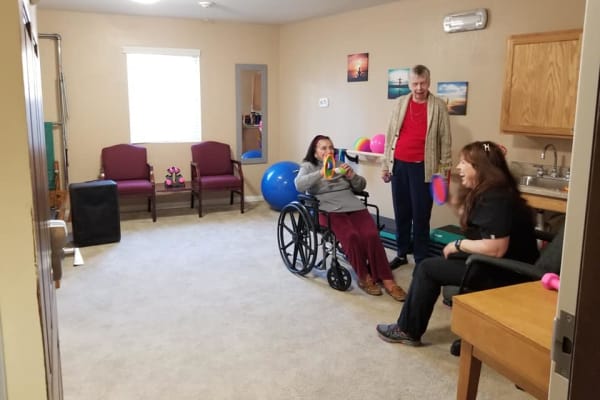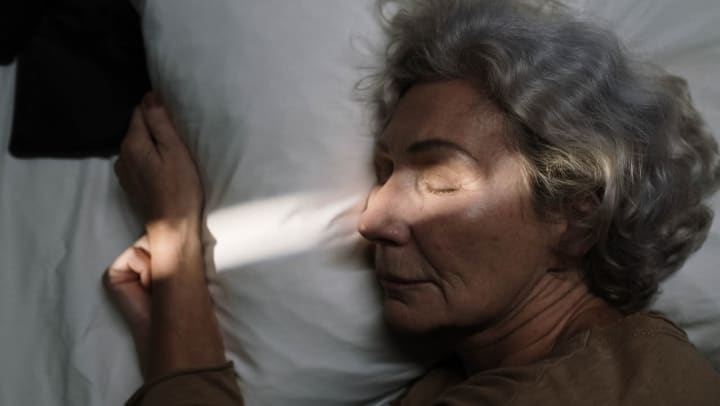Excessive Sleepiness in the Elderly
As people get older, there are many things that we expect to look forward to: retirement, travel, time for hobbies, or maybe increased freedom. But there are also some things that change that can be a little unexpected, such as excessive sleepiness.
Why Do the Elderly Sleep So Much?
It’s been reported that around 20% of older people experience excessive daytime sleepiness. This can be a sign of an underlying health condition rather than merely the aging process. Excessive daytime sleepiness in older adults may be a symptom of health issues like sleep apnea, cognitive impairment, or cardiovascular issues. It can also be caused from routine issues such as sleep deprivation, less than ideal sleeping conditions at night, or even boredom.
Causes of Excessive Sleepiness
Depression - Depression can cause excessive sleepiness in people of all ages. According to the Centers for Disease Control and Prevention (CDC), depression affects about 1% to 5% of the general elderly population, can be triggered by a medical condition, loss of loved ones or friends, lifestyle changes or chemical changes in the brain. It’s important to recognize depression in seniors because while the condition is relatively common, and though common it is not normal and should be treated.
Dementia - Seniors with dementia can experience an array of sleep issues, as they age and especially as the disease progresses. Excessive sleepiness or sleep deprivation are the two extremes of these sleep issues. Sleep deprivation can make symptoms and agitation worse, while excessive sleepiness can cause a resident to reverse their daytime and nighttime schedules. Both of these add undo stress to the senior so it’s important to seek treatment for sleep problems and excessive sleepiness.
Sleep Disorders - There are a few sleep disorders and health conditions may result in changes in the way that people sleep and can impact their overall health and quality of life. Some of the more common conditions are Sleep Apnea, Restless Leg Syndrome, and Narcolepsy.
Common Sleep Disorders For Elderly
There are three well known, and relatively common sleep disorders that can affect sleep patterns of adults, including the elderly. Any one of these disorders can lead to sleep deprivation, and consequently excessive sleepiness.
Sleep Apnea
One of the most common sleep-related disorders is Sleep Apnea. This is a sometimes serious condition that can cause someone to repeatedly stop and start breathing throughout the night. This disturbance in a night’s sleep can leave a senior sleepy during the day, a sore throat or headache in the morning, irritability and trouble concentrating.
Restless Legs Syndrome (RLS)
RLS can cause an irresistible and uncomfortable urge to move the legs during the night. This can make it difficult for someone to fall asleep, often resulting in excessive sleepiness the next day. There are many home remedies for dealing with RLS including warm baths before bed to relax the leg muscles, avoiding eating at night or drinking caffeine late in the day. There are also medications that can be prescribed to assist with sleeping through the night.
Narcolepsy
Narcolepsy is a chronic neurological disorder that causes disrupted night sleep and excessive daytime sleepiness. It consists of abnormal REM sleep and can cause brief attacks of muscle weakness and strength that can cause a body to collapse. Narcolepsy can be so severe that it can have a negative impact on a person’s ability to perform daily activities and on their overall health. It is often treated with medications and lifestyle adjustments that your physician can recommend.
REM Sleep Behavior Disorder
REM sleep behavior disorder is often associated with Parkinson’s Disease and Lewy Body Dementia. It causes a person to physically act out vivid, often unpleasant dreams with vocal sounds and sudden, often violent arm and leg movements during rapid eye movement sleep. This disruption in sleep can lead to frequent waking up throughout the night, feelings of needing to rollover or get up, and insomnia.
Sleep Health with Ridgeline
Living in a Senior Living community by Ridgeline can help mitigate some of the causes of excessive sleepiness. It starts with being vigilant about a resident’s medications and health. With our nursing and care staff monitoring your loved ones’ daily health, we can be the first to catch changes before they become serious. It is also important to encourage them to participate in life as fully as they can. Our Activity Director can provide many opportunities for social interaction, mental stimulation and physical activity which can encourage a higher quality of life.


